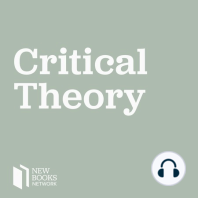71 min listen

Stephen Collier, “Post-Soviet Social: Neoliberalism, Social Modernity, Biopolitics” (Princeton UP, 2011)
Stephen Collier, “Post-Soviet Social: Neoliberalism, Social Modernity, Biopolitics” (Princeton UP, 2011)
ratings:
Length:
77 minutes
Released:
Jun 20, 2012
Format:
Podcast episode
Description
Pipes matter. That’s right: pipes. Anyone who has spent time in Russia knows that the hulkish cylinders that snake throughout its cities are the lifeblood of urban space, linking apartment block after apartment block into a centralized network. But pipes are more than tentacles that form the Russian social state. As Stephen Collier argues in his Post-Soviet Social: Neoliberalism, Social Modernity, Biopolitics (Princeton UP, 2011), their physical organization act as structural impediments to neoliberal reform. Drawing on Michel Foucault’s lectures on biopolitics and neoliberalism, Collier demonstrates that the intransigence of the mundane innards of the former Soviet social state–pipes, wires, budgets, apartment blocks, bureaucratic routines and social norms–require us to rethink our standard narratives of neoliberalism as everywhere and behind everything.
Rethinking the actual implementation of neoliberalism in Russia’s turbulent 1990s takes Collier to the provinces, specifically the mono-industrial towns of Belaya Kalitva and Rodniki. There, Soviet postwar urban planning networked industrial development, population, and social welfare with the factory as the central node in what Collier calls “enterprise-centric social modernity.” The factory served as the khoziain, from which radiated the city’s utilities, schools, health care, and cultural centers, planned according to measured norms of allocation and output. But what happened when the Soviet Union collapsed? How did reformers decouple Russia’s integrated social welfare from its economic production? Surprisingly, Collier finds that despite neoliberalism’s tendencies toward privatization and monetarization, the relics of Soviet modernity forced reformers to preserve basic aspects of the Russian social state.Learn more about your ad choices. Visit megaphone.fm/adchoices
Rethinking the actual implementation of neoliberalism in Russia’s turbulent 1990s takes Collier to the provinces, specifically the mono-industrial towns of Belaya Kalitva and Rodniki. There, Soviet postwar urban planning networked industrial development, population, and social welfare with the factory as the central node in what Collier calls “enterprise-centric social modernity.” The factory served as the khoziain, from which radiated the city’s utilities, schools, health care, and cultural centers, planned according to measured norms of allocation and output. But what happened when the Soviet Union collapsed? How did reformers decouple Russia’s integrated social welfare from its economic production? Surprisingly, Collier finds that despite neoliberalism’s tendencies toward privatization and monetarization, the relics of Soviet modernity forced reformers to preserve basic aspects of the Russian social state.Learn more about your ad choices. Visit megaphone.fm/adchoices
Released:
Jun 20, 2012
Format:
Podcast episode
Titles in the series (100)
Lynne Huffer, “Are the Lips a Grave? A Queer Feminist on the Ethics of Sex” (Columbia University Press, 2013): In her fourth book, Lynne Huffer argues for a restored queer feminism to find new ways of thinking about sex and about ethics. Are the Lips a Grave? A Queer Feminist on the Ethics of Sex (Columbia University Press, by New Books in Critical Theory